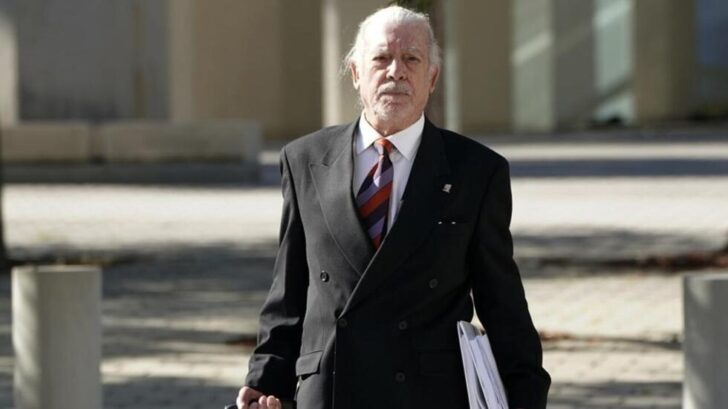On October 3, Judge Edwin Torres of the Southern District Court of Florida rejected the United States’ second extradition request for former marine Roberto Guillermo Bravo in connection with the Trelew massacre. The court in Rawson, Chubut, had sought his extradition for the case investigating the shooting of Montoneros, FAR, and ERP militants who attempted to escape from Rawson Prison on August 22, 1972.
Bravo could never be tried in Argentina. In 1973 he was sent to the United States by the Navy as military attaché to the Argentine embassy. Since his retirement in 1979, he has remained in that country, of which he is now a citizen.
In 2010, the initial request was rejected, citing alleged lack of probable cause, among other reasons. Following the verdict in 2012, wherein other co-accused received life sentences for 16 aggravated homicides and 3 attempted homicides, and subsequent confirmation by the Federal Chamber of Criminal Cassation upon review, the Rawson court reissued the extradition request, including all the evidence presented during the trial.
The hearing for the second extradition request took place in March 2020. Recently, Judge Torres issued his verdict, recognizing the victims and their suffering, and affirming the established facts of the Trelew massacre. In his ruling, he placed weight on the civil conviction imposed on Bravo in the United States. This conviction stemmed from a lawsuit brought by the families of the victims, presented by the Center for Justice and Accountability and supported by CELS.
Judge Torres also concluded that there was ample probable cause justifying extradition and that there were no legal impediments for the U.S. government to criminally prosecute the former Navy officer for these offenses. Nevertheless, he denied the extradition request, citing the “political crime” exception outlined in the extradition treaty between Argentina and the United States. Many of his findings on this exception were based on the testimony of two witnesses presented by Bravo in 2010, who provided a biased version of Argentine history.
This recent ruling reflects a lack of understanding of Argentine history, the ongoing pursuit of memory, truth, and justice, and the applicable human rights standards. Despite the prosecutor in the Florida case emphasizing that “the Trelew massacre was a barbaric act for which the Treaty does not provide any safe haven” during the extradition request, the judge dismissed this argument. Unfortunately, the verdict is final and cannot be appealed.
In 2022, a jury comprised of U.S. citizens held Bravo accountable for the August 22, 1972, massacre and ordered him to compensate the victims. We are actively monitoring the ongoing review of Bravo’s civil conviction by the Florida Court of Appeals.
51 years after the Trelew Massacre, our commitment to supporting the families of the victims in their pursuit of memory, truth, and justice remains stronger than ever.

